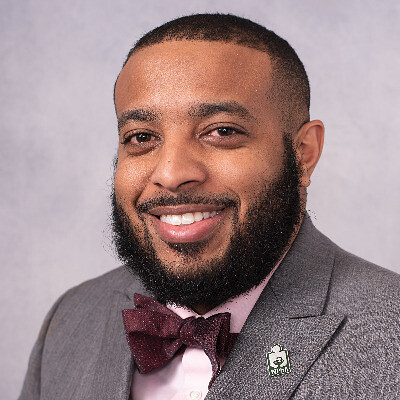Developing an Interprofessional and Competency-based Education HIV Prep Clinic at a Land-grant University in Texas
As the HIV epidemic continues to disproportionately impact underserved communities, academic institutions must lead with innovation and collaboration. This abstract describes strategies toward the development of an interprofessional HIV Pre-Exposure Prophylaxis (PrEP) Clinic embedded within a university-affiliated clinical space adjacent to a rural community at a land-grant university in Central Texas. Structured experiences tailored and led by a pharmacist, fellow in a HIV Prevention Fellowship, and director of learning in practice, the initiative is being established through a dedicated interprofessional office that operates independently of the six participating health professional colleges and schools.
Using the Interprofessional Education Collaborative (IPEC) Core Competencies and Competency-Based Medical Education (CBME) frameworks, this model prioritizes the creation of real-world practice experiences for learners across professional disciplines, including pharmacy, nursing, medicine, dentistry, public health, and engineering medicine. The clinic development will foster longitudinal experiential learning, with students actively engaging in population health screenings, PrEP counseling and, when indicated, prescribing, along with care coordination, and health education to deliver culturally responsive care to students and potentially the external rural and minoritized communities surrounding the campus.
The aim is to highlight the strategies and framework for institutional and stakeholder engagement, faculty and preceptor development, operational infrastructure, and curricular integration. Additionally, progress toward outcomes and lessons learned will be monitored, including increased student confidence in interprofessional collaboration and clinical HIV prevention strategies, as well as improved patient access to PrEP services on campus and in rural areas.
Our development model demonstrates how pharmacists can serve as transformational academic and clinical leaders in building sustainable, interprofessional HIV prevention efforts that address health disparities and strengthen the healthcare workforce toward ending the HIV Epidemic.
This in-progress development model demonstrates that pharmacist-led, interprofessional and competency-based medical education HIV prevention clinics can be pivotal for both educational innovation, PrEP access, and community health impact. Through relationship-building, strategic consensus, and a commitment to access and health equity, the clinic stands to serve as a replicable framework for academic institutions seeking to end the HIV epidemic, particularly in rural and minoritized communities.



